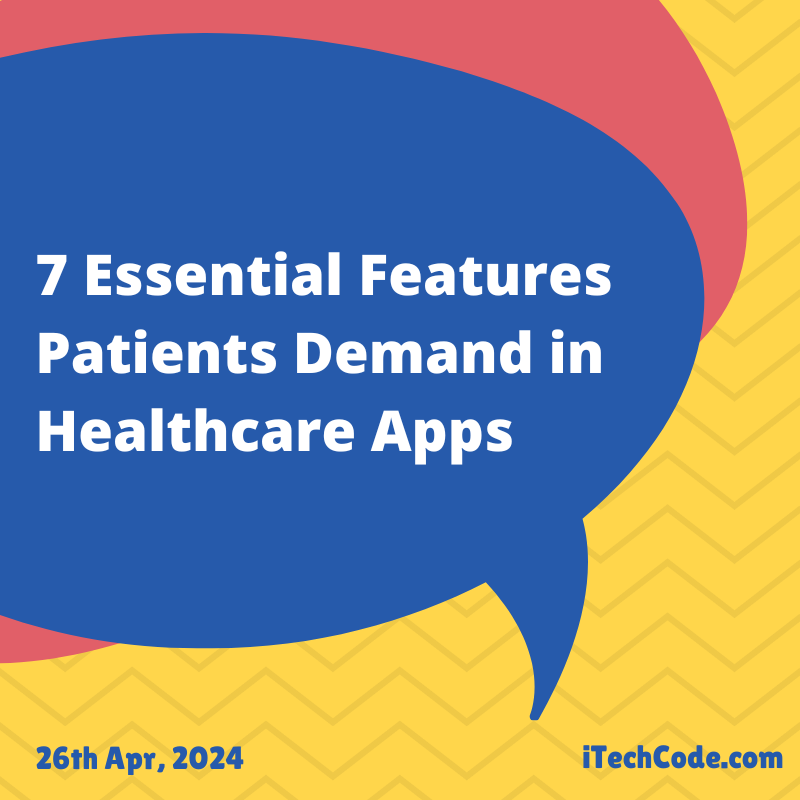Healthcare is transforming into an innovative field, today the number of people who are resorting to digital tools to control their health and lifestyle is constantly growing. Healthcare apps have now come of age – they ameliorate processes, alleviate patient anxiety, and allow people to manage their health journeys judiciously. Patients demand these key healthcare app features, and when developing a healthcare app (https://www.sharpquest.com/case-study/graham-healthcare-1/new-patient-app-raises-the-level-of-patient-homecare-for-graham-healthcare-group/) , they should be among the critical things to consider.
1. Secure User Authentication: Protecting Sensitive Data
As for data security in healthcare, there is a balance between privacy and protection and no one wants confidential information to be read by anyone who has no authorization, as well as no one would wish their lives to be ended by an erroneous incident. If digital health applications stop working or if they are not immune to cyber-attacks and security breaches, patients will lose their trust and the name of digital health applications will be besmirched. Hence, the health outcomes of patients will significantly shed. Implement multi-factor authentication and use biometric logins (like facial or fingerprint) to ensure you meet HIPAA regulations that are designed to protect personal health information (PHI).
2. Appointment Scheduling: Convenience at Your Fingertips
Patients crave the convenience of online appointment scheduling. Your healthcare app (https://www.sharpquest.com/case-study/graham-healthcare/clinician-app-improves-care-and-makes-graham-healthcare-group-a-top-employer/) should enable users to easily view real-time availability, book appointments at their preferred times, and even reschedule as needed. Offer push notifications or automated reminders to reduce missed appointments, benefiting both patients and providers. Consider integrating video consultations for the ultimate in flexibility.
3. Health & Fitness Tracking: Data-Driven Insights
Human beings need instruments that correct their positive attitude towards the matter of health monitoring. Ensure the device has a function to measure vital metrics such as blood pressure, heart rate, and sleeping rhythms as well as to monitor physical activity. Integrate Bluetooth and other smart objects so that data collection can be simplified. Patients’ right to use their personal data to share with their healthcare team will greatly enhance the quality of the communication and customized prevention plans.
You can talk to experts at healthcare mobile app development company in Michigan to see examples of how Bluetooth-enabled specialized hardware devices can be integrated in mobile apps.
4. Medication Tracking & Reminders: Optimizing Adherence
Non-adherence due to missed doses or misunderstood instructions can aggravate the health issue. The app should include powerful drug administration options. Let patients record their medications, self-remind themselves about scheduled medicines, and receive refill alerts. Moreover, the additional of drug interaction warnings can serve to calm a patient down and boost the overall treatment results.
5. Electronic Health Records (EHR) Integration: Informed Decisions
Let patients see their medical records safely. Integrating EHR systems provides patients with multiple services like viewing their test results, reading past appointments, and understanding their medical history. This, therefore, enhances better patient-provider interaction and thus promotes informed choices regarding health care.
6. Telemedicine & Virtual Consultations: Accessibility Redefined
Reach out to more people and overcome obstacles that are faced by the underprivileged with the help of telemedicine capabilities. Patients can connect with healthcare services even online, thus cutting time and travel costs. The telemedicine technology has become very useful in post-treatment care, chronic condition management as well as consultations with specialists from remote locations. Virtual visits can cut down on appointment wait times and ease pressures on the healthcare system.
7. Emergency Alerts and Support: Safety in Critical Moments
In extreme health emergencies, time is always critical. Have features like emergency calls or panic buttons for one press. Introduce location tracking (https://support.apple.com/en-us/102647) to send help at the moment of need in critical situations. These important mental health crisis resources can be made available with just the clicks of a button and serve as a lifesaving means for those in need.
The Future of Patient-Focused Care
These core elements make patients a central part of their healthcare venture. Healthcare apps of this class help to engage patients, improve healthcare outcomes as well as to gain trust from the people you serve. While technology is constantly advancing, take the lead in innovation to continue to set the bar even higher for your patients.
Reach out to SharpQuest Inc. a Mobile App Development Company in Michigan for free consultation about developing digital transformation roadmap for your health care business.

You can also stay updated by subscribing to iTechCode.